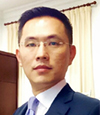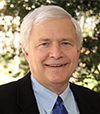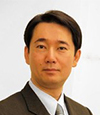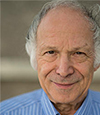Join us for a free one-day workshop for educators at the Japanese American National Museum, hosted by the USC U.S.-China Institute and the National Consortium for Teaching about Asia. This workshop will include a guided tour of the beloved exhibition Common Ground: The Heart of Community, slated to close permanently in January 2025. Following the tour, learn strategies for engaging students in the primary source artifacts, images, and documents found in JANM’s vast collection and discover classroom-ready resources to support teaching and learning about the Japanese American experience.
A Time of Uncertainty in US-Taiwan-China Relations
The Grassroots Diplomacy Council and the USC U.S.-China Institute hosted a symposium on the relationships of Taiwan, China, and the United States.

The triangular relationships of Taiwan, China, and the United States are always complex and vital, but perhaps never more so than today. Our societies are more interwoven than ever, but disputes seem more difficult to resolve and tensions in one dimension seem to be spilling over to others. A number of regional specialists addresses topics including diplomacy, security, economics, and cultural exchange.
This video is also available on the USCI YouTube Channel.
Program
Welcome
Clayton Dube, Director, USC US-China Institute
Yinglee Tseng, Managing Director, Grassroots Diplomacy Council
Lin Lichan 林麗蟬 លីន លីចាន់, Taiwan Legislator
Panel 1
Tom Hollihan, Annenberg School of Communication and Journalism, University of Southern California
"Chaos and Disorder: Foreign Policy in the Trump Era"
Charles I-hsin Chen, Center for Rising Powers, University of Cambridge
"The Last Link in the Cross-Strait Chain"
Stanley Rosen, Dornsife College, University of Southern California
“China’s Soft Power Efforts toward Taiwan”
Panel 2
Derek Grossman, Senior Defense Analyst, RAND Corporation
“How Serious are Beijing’s Threats?”
Huang Kwei-bo 黃奎博, College of International Affairs, National Chengchi University
“Love from the U.S.: How Should Taiwan Understand the Support of the U.S.?
Speakers
 Charles Chen 陳以信 received his PhD in economics on topic of the privatisation in China from SOAS in 2014. Before joining the Centre of Taiwan Studies as a Research Associate, he once worked as Parliamentary aide, Presidential staff, spokesman of the ruling Kuomintang party, and spokesman of Presidential Office in Taiwan. He is also a postdoctoral fellow in Centre for Rising Powers, POLIS, University of Cambridge. His writings of editorials, columns, commentaries and letters are regularly published on Taiwan and foreign newspapers.
Charles Chen 陳以信 received his PhD in economics on topic of the privatisation in China from SOAS in 2014. Before joining the Centre of Taiwan Studies as a Research Associate, he once worked as Parliamentary aide, Presidential staff, spokesman of the ruling Kuomintang party, and spokesman of Presidential Office in Taiwan. He is also a postdoctoral fellow in Centre for Rising Powers, POLIS, University of Cambridge. His writings of editorials, columns, commentaries and letters are regularly published on Taiwan and foreign newspapers.
 Lin Lichan 林麗蟬 is a member of the Taiwan legislature. She is an immigrant from Cambodia, who learned Mandarin and Taiwanese and earned bachelor's and master's degrees. She was the first "new immigrant" to win election to the legislature. She became a strong voice for improving conditions for migrant workers and strengthening education for migrant children.
Lin Lichan 林麗蟬 is a member of the Taiwan legislature. She is an immigrant from Cambodia, who learned Mandarin and Taiwanese and earned bachelor's and master's degrees. She was the first "new immigrant" to win election to the legislature. She became a strong voice for improving conditions for migrant workers and strengthening education for migrant children.
 Derek Grossman is a senior defense analyst at the RAND Corporation focused on a range of national security policy and Indo-Pacific security issues. Grossman has over a decade of experience in the Intelligence Community (IC) and worked at the National Security Agency (NSA) where he pioneered a new assessment format to enhance NSA's intelligence support to policy. He also served at the CIA and on the President's Daily Brief staff. Grossman holds an M.A. from Georgetown University's School of Foreign Service in U.S. national security policy and received his B.A. with Honors from the University of Michigan in political science and Asian Studies.
Derek Grossman is a senior defense analyst at the RAND Corporation focused on a range of national security policy and Indo-Pacific security issues. Grossman has over a decade of experience in the Intelligence Community (IC) and worked at the National Security Agency (NSA) where he pioneered a new assessment format to enhance NSA's intelligence support to policy. He also served at the CIA and on the President's Daily Brief staff. Grossman holds an M.A. from Georgetown University's School of Foreign Service in U.S. national security policy and received his B.A. with Honors from the University of Michigan in political science and Asian Studies.
 Thomas Hollihan teaches communication at USC and chairs the U.S.-China Institute executive committee. He specializes in political communication and has been a consultant for politicians, the U.S. Navy, and various businesses and non-profit organizations. His most recent book is The Dispute over the Diaoyu/Senkaku Islands: How Media Narratives Shape Public Opinions and Challenge the Global Order (click here for a book presentation). His earlier books include Uncivil Wars: Political Campaigns in a Media Age.
Thomas Hollihan teaches communication at USC and chairs the U.S.-China Institute executive committee. He specializes in political communication and has been a consultant for politicians, the U.S. Navy, and various businesses and non-profit organizations. His most recent book is The Dispute over the Diaoyu/Senkaku Islands: How Media Narratives Shape Public Opinions and Challenge the Global Order (click here for a book presentation). His earlier books include Uncivil Wars: Political Campaigns in a Media Age.

Huang Kwei-bo 黃奎博 is Vice Dean at College of International Affairs and Associate Professor of Department of Diplomacy, National Chengchi University (NCCU) in Taiwan. He was founding director of NCCU's International Master's Program in International Studies (IMPIS). Between 2009 and 2011, he was chairman of the Research and Planning Committee at Taiwan's Ministry of Foreign Affairs (and spoke at USC). He was a Fulbright visiting scholar at SAIS, Johns Hopkins University (2008) and a visiting fellow at the Brookings Institution's Center for East Asian Policy Studies (2012). He earned an M.A. in political science from the George Washington University and a Ph.D. in international relations from University of Maryland at College Park.
 Stanley Rosen teaches political science at USC and for six years served as director of the East Asian Studies Center. Rosen has written on a wide range of subjects, from his early work on the Cultural Revolution to his work on education, film, and soft power. His most recent books are Art, Politics and Commerce in Chinese Cinema (ed. with Y. Zhu) and Chinese Politics: State, Society and the Market (ed. with P. Gries). Rosen is co-editor of the journal Chinese Education and Society.
Stanley Rosen teaches political science at USC and for six years served as director of the East Asian Studies Center. Rosen has written on a wide range of subjects, from his early work on the Cultural Revolution to his work on education, film, and soft power. His most recent books are Art, Politics and Commerce in Chinese Cinema (ed. with Y. Zhu) and Chinese Politics: State, Society and the Market (ed. with P. Gries). Rosen is co-editor of the journal Chinese Education and Society.
Moderator
 Clayton Dube heads the USC U.S.-China Institute which focuses on the multithreaded U.S.-China relationship. Dube teaches Chinese history and studies the role of the media in U.S.-China relations.
Clayton Dube heads the USC U.S.-China Institute which focuses on the multithreaded U.S.-China relationship. Dube teaches Chinese history and studies the role of the media in U.S.-China relations.
Featured Articles
Please join us for the Grad Mixer! Hosted by USC Annenberg Office of International Affairs, Enjoy food, drink and conversation with fellow students across USC Annenberg. Graduate students from any field are welcome to join, so it is a great opportunity to meet fellow students with IR/foreign policy-related research topics and interests.
RSVP link: https://forms.gle/1zer188RE9dCS6Ho6
Events
Hosted by USC Annenberg Office of International Affairs, enjoy food, drink and conversation with fellow international students.
Join us for an in-person conversation on Thursday, November 7th at 4pm with author David M. Lampton as he discusses his new book, Living U.S.-China Relations: From Cold War to Cold War. The book examines the history of U.S.-China relations across eight U.S. presidential administrations.




